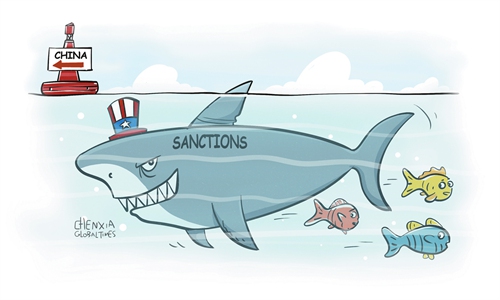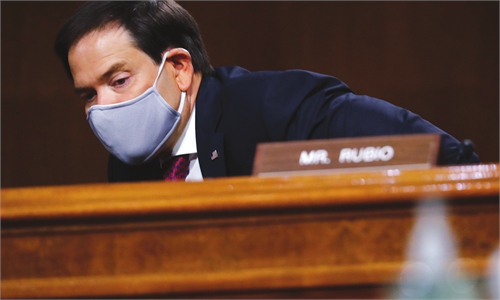
Illustration: Chen Xia/Global Times
On Friday, in a televised statement before Independence Day celebrations, Brazilian President Luiz Inácio Lula da Silva emphasized that "no country is truly independent if it tolerates threats to its sovereignty," referring to the country's decision to impose a ban on social media platform X, previously known as Twitter.
This recent action by the Brazilian government has sparked widespread discussion in the international community. On the surface, this appears to be a controversy about freedom of speech, but in reality, it involves a struggle between national sovereignty and multinational corporations.
According to relevant reports, the Brazilian Supreme Court made this decision mainly because X failed to comply with the court's previous orders, including not appointing its legal representative in Brazil within the specified time limit. Furthermore, the platform did not take adequate measures against the spread of fake news, hate speech and anti-democratic rhetoric.
This decision reflects the Brazilian government's determination to maintain national stability, prevent political polarization and protect democratic institutions. It was made based on the requirements of Brazilian domestic law. However, Western countries, especially the US, have hyped this as a freedom of speech issue. This reaction, while seemingly concerning norms of free speech, is about protecting the interests of US multinational corporations. Beneath the guise of freedom of speech lies the greed of capital.
This brings to mind economist Thomas L. Friedman's view that "No two countries that both have a McDonald's have ever fought a war against each other." The error in this view lies in treating the institutional norms of Western countries, including free speech norms and rules, as universal standards. Promoting these so-called universal norms globally would benefit the expansion of Western multinational corporations and the colonization of ideas.
Respect for a country's sovereignty first involves respect for its laws. Brazil's decision pertains to regulating social media platforms, which encompasses both the boundaries of free speech and the management of these platforms. Brazil has punished X in accordance with its laws, rather than based on a "potential security threat," an excuse often adopted by Washington. The country wants to ensure that multinational companies like X can operate legally in Brazil without undermining its stability and economic order.
It's worth noting that while X is a social media platform, this doesn't mean it should enjoy privileges that other businesses do not. Any enterprise wishing to operate in another country must comply with local laws and regulations. This principle applies to all industries, and social media platforms are no exception.
In the current context of dramatic changes in global geopolitics, the importance of national sovereignty is becoming increasingly prominent. This trend is evident in Brazil, as well as globally and in Western countries. Global geopolitics is resisting the international flow of capital and the transnational expansion of enterprises.
The Brazilian government's decision reflects the attitude of an emerging power when facing multinational tech giants. It demonstrates that even in the internet age, nations still have the power and responsibility to regulate businesses operating within their borders to protect national interests and citizens' rights. This approach is not a suppression of free speech but a preservation of national sovereignty.
At the same time, this incident highlights the challenges facing global internet governance. As social media platforms' influence continues to grow worldwide, balancing the protection of freedom of speech with the maintenance of national security has become a common challenge for governments. Countries may adopt different strategies based on their political, cultural and legal traditions. The critical point is that the laws of each country must be followed.
When discussing global issues, it's essential to think beyond Western centrism and ensure that every country's laws, legal system, sovereignty and cultural norms are fully respected.



